4. After the “Furnaces”
As military regimes of the past continue to cast their shadows down onto the present day, the burdens of memory, and of unresolved social and political problems persist. The passion of the “New Latin American Cinema” may have changed form and appearance, but there is continuity as well. Realities in Argentina, Chile, Brazil, Uruguay, and Panama are re-introduced in a variety of cinematic styles. Moving beyond simple investigation of history or society, a new light is shone on “then” and “now” employing perspectives and methods available to filmmakers in the present.
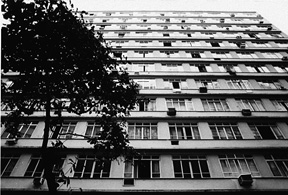 Master—A Copacabana Building
Master—A Copacabana Building
Edifício Master- BRAZIL / 2002 / Portuguese / Color / DVCAM / 110 min
Director, Script: Eduardo Coutinho
Photography: Jacques Cheuiche
Editing: Jordana Berg
Sound: Valéria Ferro
Producers: João Moreira Salles, Mauricio Andrade Ramos
Over a period of seven days, director Eduardo Coutinho and his film crew intimately recorded the lives of the residents of “Edifício Master,” an apartment building located one block from Copacabana Beach in Rio de Janeiro. The building has twelve floors and twenty-three units on each floor, with a total of almost 500 residents. Thirty-seven of these residents share their life stories, opening the doors to their homes and their private lives for the cameras.
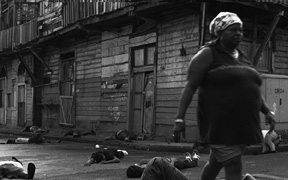 Invasion
Invasion
Invasión- PANAMA, ARGENTINA / 2014 / Spanish / Color / Blu-ray / 94 min
Director, Producer: Abner Benaim
Co-producer: Alejandro Israel
Production Companies: Apertura Films, AjíMolido Films
Source: Cinephil
In 1989 the United States invaded Panama, while the Noriega administration was in power. Through reenactments and interviews, the invasion of Panama and how its events are remembered are depicted in bold form. The work starkly depicts how people’s memories have begun to fade.
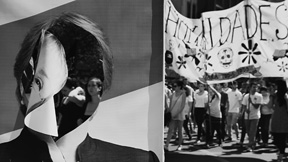 PROPAGANDA
PROPAGANDA
- CHILE / 2014 / Spanish / Color / Blu-ray / 61 min
Directors: MAFI (Christopher Murray, Israel Pimentel, Maite Alberdi, María Paz González, Ignacio Rojas, Antonio Luco, Adolfo Mesías, Juan Francisco González, Valeria Hofmann, Fernando Lavanderos, Carlos Araya, Jeremy Hatcher, Simón Vargas, Pelayo Lira, Felipe Azúa, Orlando Torres, Camilo Corbeaux, Enrique Farías, David Belmar)
Nineteen young directors who followed the 2013 presidential elections in Chile assemble a playful montage from their voluminous footage of the campaign inviting us to consider the complex relationship between the public and the politicians. Each of the five candidates have different positions and policies, but their campaigns are furthermore a competition between publicity strategies, making this film also a commentary on the media. At a time when distrust in politicians in Chile is growing and students are demonstrating for free university tuition, young people are becoming more visible as participants in politics. This work is a contribution to this trend.
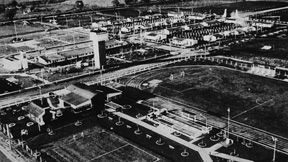 Toponymy
Toponymy
Toponimia- ARGENTINA / 2015 / Spanish / Color / Blu-ray / 82 min
Director: Jonathan Perel
Toponymy portrays a region in the west of Tucumán province in Argentina that was decimated in 1975 as part of a military campaign to suppress local guerrillas, mainly the People’s Revolutionary Army (ERP). This film forgoes narration, using fixed shots of the streets, intersections and homes that are named after soldiers killed during the fighting with the guerrillas, taking a matter-of-fact tone in demonstrating how these villages have been eaten away by the events of the past.
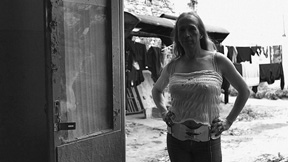 The New Man
The New Man
El hombre nuevo- URUGUAY, CHILE / 2015 / Spanish / Color / Blu-ray / 79 min
Director: Aldo Garay
Photography: Diego Varela
Editing: Federico La Rosa
Sound: Rafael Álvarez
Music: Daniel Yafalian
Producer: Micaela Solé
Production Company: Cordón Films
Stephanía is a transgender woman who earns her living guarding people’s cars in the streets of Montevideo. Born in Nicaragua as a boy, he became a child soldier during the Sandanista revolution. There, he met left-wing activists from Uruguay who took him in. The camera paints a calm portrait of Stephanía as she relives her memories of growing up in Nicaragua and reflects upon her life as a woman in Uruguay.
